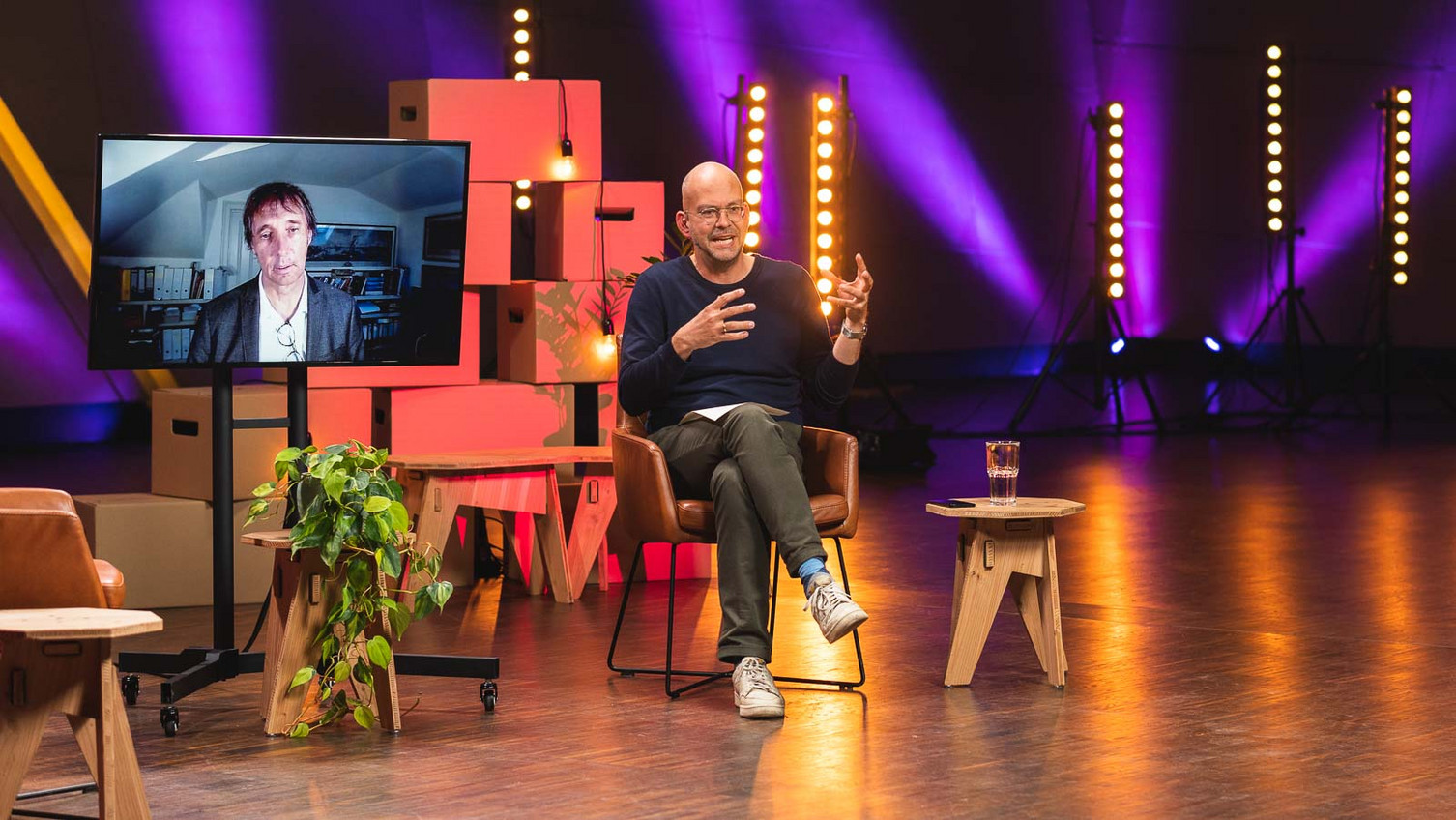Opening Week 2021: Helmut Walser Smith - "A Living Concept of Fatherland"
2021-10-15 The US-American historian and professor of history at Vanderbilt University Helmut Walser Smith discussed the topic "A Living Concept of Fatherland" with Leuphana political scientist Michael Koß on the fifth day of Leuphana Opening Week 2021. Walser Smith appealed to the 1400 first-year students: "It is a mistake to let people mobilizing hate take on the mantel of patriotism."
"How young people identified with Germany moved me," recalls Helmut Walser Smith of the 2006 World Cup in Germany. He felt the Germans' new national pride was positive. In his lecture, Walser Smith quoted political scientist Dolf Sternberger: "Fatherland is a living and not a deathly concept." "The nation is an older idea than nationalism," because it was only the National Socialists who propagated a "deathly concept of Fatherland" in Germany, which led to genocide. Why don't we just drop the concept of nation and become citizens of the world? Walser Smith is against this. He argues for the continued existence of the nation even after the demise of nationalism, because no one can live without a historical identity. "Why not base an identity on ruthless honesty?" Identity, he said, was also allowed to embrace the darkest side of history. For him, patriotism and being a citizen of the world are not mutually exclusive. At the end of his talk, Walser Smith appeals: "A good patriot reminds us that we are also and can be citizens of the world and any new deal, any transformation should start with the recognition that we can do both."
"Don't you think that those who propagate deathly nationalism are better able to mobilise politically?" asks Leuphana political scientist Michael Koß in the discussion that follows. Because currently, despite being a clear minority, endangerers of democracy in Germany are louder. "Hate is easier to mobilise than love. We are reluctant to mobilise love. It is a mistake to let people mobilizing hate take on the mantel of patriotism," Walser Smith responds.
"Whenever there is an external or internal shock," Koß objects, "the ability to mobilise occurs and can be used." For example, the exogenous shock of the so-called refugee crisis brought the right-wing populist party AfD into the German Bundestag. Walser Smith doesn't see it that way: "The migration crisis did not send Germans out of work." According to Walser Smith, the so-called refugee crisis is a "manufactured crisis" and cannot be compared, for example, with the crisis towards the end of the Weimar Republic, which promoted the NSDAP's rise to power. "Germany was remarkable in 2016 because it took in so many refugees and because so many people rolled up their sleeves and helped people. And that's what I mean by 'The Concept of a Living Fatherland'." However, Koß doubts: "Just because we are better off does not mean that we are actually better off" - because crises depend on subjective perceptions of citizens. "I have quite some faith. I am optimistic about the current German election. I'd be surprised that when all the dust settles, the answer is just nationalism," Walser Smith asserts. All in all, moderator Michael Koß concludes, "The New Deal is already here: it's a new post-national nationalism."
Here you can find presentations by other speakers at the Opening Week 2021. Including Claudia Kemfert, Honorary Professor at Leuphana and Head of Energy, Transport and Environment at the German Institute for Economic Research; Francesca Bria, digital strategy, technology and information policy consultant; and Grace Blakely, English economics and policy consultant.

